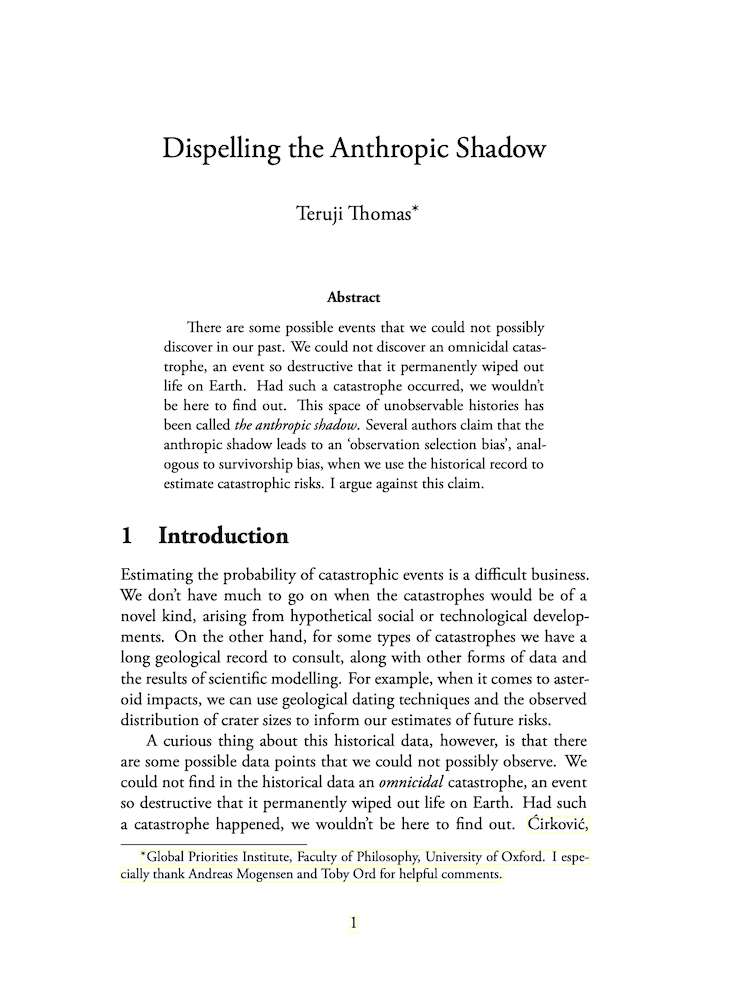Dispelling the Anthropic Shadow
Teruji Thomas (Global Priorities Institute, University of Oxford)
GPI Working Paper No. 20-2024
There are some possible events that we could not possibly discover in our past. We could not discover an omnicidal catastrophe, an event so destructive that it permanently wiped out life on Earth. Had such a catastrophe occurred, we wouldn’t be here to find out. This space of unobservable histories has been called the anthropic shadow. Several authors claim that the anthropic shadow leads to an ‘observation selection bias’, analogous to survivorship bias, when we use the historical record to estimate catastrophic risks. I argue against this claim.
Other working papers
AI alignment vs AI ethical treatment: Ten challenges – Adam Bradley (Lingnan University) and Bradford Saad (Global Priorities Institute, University of Oxford)
A morally acceptable course of AI development should avoid two dangers: creating unaligned AI systems that pose a threat to humanity and mistreating AI systems that merit moral consideration in their own right. This paper argues these two dangers interact and that if we create AI systems that merit moral consideration, simultaneously avoiding both of these dangers would be extremely challenging. While our argument is straightforward and supported by a wide range of pretheoretical moral judgments, it has far-reaching…
Concepts of existential catastrophe – Hilary Greaves (University of Oxford)
The notion of existential catastrophe is increasingly appealed to in discussion of risk management around emerging technologies, but it is not completely clear what this notion amounts to. Here, I provide an opinionated survey of the space of plausibly useful definitions of existential catastrophe. Inter alia, I discuss: whether to define existential catastrophe in ex post or ex ante terms, whether an ex ante definition should be in terms of loss of expected value or loss of potential…
Consciousness makes things matter – Andrew Y. Lee (University of Toronto)
This paper argues that phenomenal consciousness is what makes an entity a welfare subject, or the kind of thing that can be better or worse off. I develop and motivate this view, and then defend it from objections concerning death, non-conscious entities that have interests (such as plants), and conscious subjects that necessarily have welfare level zero. I also explain how my theory of welfare subjects relates to experientialist and anti-experientialist theories of welfare goods.

